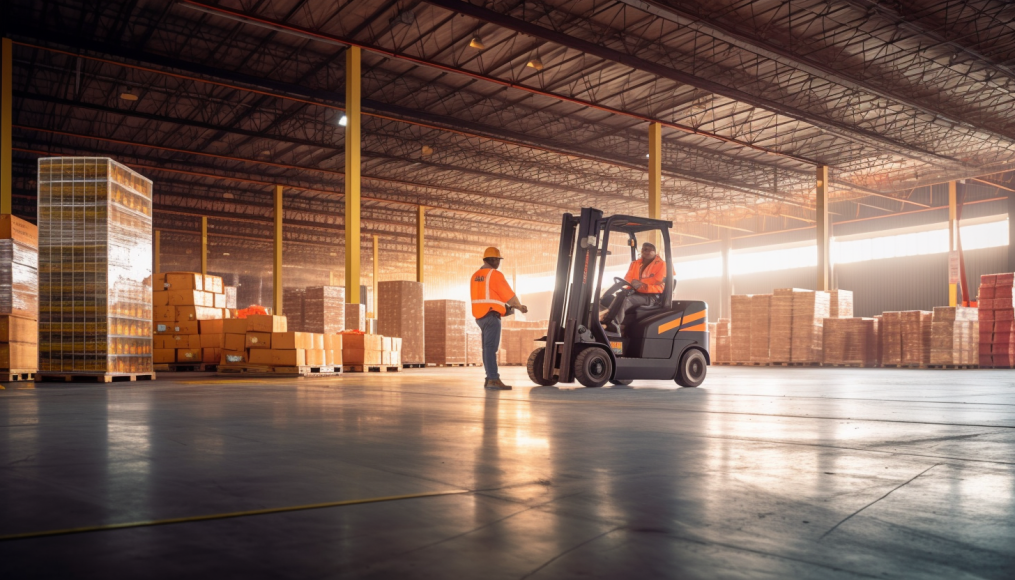The prospect of sourcing an industrial cleaning service for your facility can be daunting. It’s a significant project that involves scoping, heavy research, and budgeting. Often, facility managers have little choice in the matter. In almost every case, hiring an industrial cleaner isn’t optional. Hiring regular janitorial companies that don’t offer facility management services might save you some money, but you’ll constantly be worrying about regulators and workplace safety. Long term, hiring the right company makes sense. Here’s a good primer for How to determine which industrial cleaning services you need.
Start with compliance
The best place to start with your requirements gathering is by mapping out any and all regulatory bodies and their various best practices. Generally, if your facility is in compliance with these bodies, you should feel good about local and state level requirements. Different industries answer to different regulators, but here’s a quick checklist to work down from:
Federal
Occupational Safety and Health Administration (OSHA): OSHA is responsible for ensuring safe and healthy working conditions by setting and enforcing standards and regulations related to workplace safety, including industrial facilities.
Environmental Protection Agency (EPA): The EPA oversees environmental regulations and compliance, including those related to air and water pollution, hazardous waste management, and chemical handling. Industrial facilities are subject to various EPA regulations, such as the Clean Air Act and the Resource Conservation and Recovery Act.
Federal Energy Regulatory Commission (FERC): FERC regulates and oversees energy infrastructure, including industrial facilities that generate, transmit, or distribute electric power, natural gas, and oil.
U.S. Department of Labor (DOL): The DOL has multiple agencies that regulate different aspects of industrial facility management. For example, the Wage and Hour Division enforces labor laws related to minimum wage and overtime, while the Mine Safety and Health Administration (MSHA) oversees safety and health standards for mining operations.
Pipeline and Hazardous Materials Safety Administration (PHMSA): PHMSA is responsible for regulating the transportation of hazardous materials, including those handled within industrial facilities, through pipelines, and other means of transport.
U.S. Food and Drug Administration (FDA): The FDA regulates various aspects of industrial facilities related to food processing, manufacturing, and storage to ensure safety and compliance with food and drug regulations.
State & Local
There’s too many state regulators to list here, but they should be a key part of your compliance search. State regulators will often have requirements above and beyond federal ones. More importantly, state bodies are more likely to directly interact with your facility. Any cleaning service your retain should hit every checkbox from a state regulator.
Local regulators might not have a dedicated department that oversees your industry but they may have laws on the books that mandate certain practices around disposal, city permits, or work hours.
Union
If your team is unionized, you’re probably well aware that you must negotiate with them for most things, including hiring contractors for industrial cleaning. Industrial cleaning is a specialized field that requires special training and practices. In many cases, even unionized workforces may agree to outsource this work to a team that specializes in industrial cleaning.
Look at Your Facilities
The kind of facility you’re managing will be the second biggest factor outside of compliance. Industrial cleaners like Pegasus often offer a suite of services depending on the facility, here’s a few examples:
Cleanrooms
Cleanrooms have controlled environments with regulated temperature, humidity, and air pressure. Cleanrooms follow a strict cleaning schedule, which includes daily, weekly, monthly, and periodic cleaning tasks. The frequency and intensity of cleaning depend on the cleanroom classification and the activities performed within. High-Efficiency Particulate Air (HEPA) vacuums are used to clean floors, walls, and ceilings in cleanrooms. These vacuums have filters that can capture very small particles, helping to maintain cleanliness. In cleanrooms where sensitive electronic components are handled, Electrostatic Discharge (ESD) control measures are implemented. This includes using ESD-safe materials, grounding personnel and equipment, and regularly checking for electrostatic charges.
Data Centers
Data centers need to minimize the presence of dust and particles, as they can interfere with the sensitive electronic equipment. Regular cleaning of surfaces, floors, and ceilings is necessary to remove dust and prevent particle accumulation. Data centers rely on efficient air filtration systems to maintain clean air and prevent the buildup of contaminants. Regular inspection, maintenance, and replacement of air filters are essential to ensure optimal air quality. Other specifics include Server rack cleaning, cable management, and even pest control.
Medical Facilities
Cleaning protocols in hospitals aim to reduce healthcare-associated infections. This includes following specific cleaning and disinfection techniques, using appropriate disinfectants with proven efficacy against healthcare-associated pathogens, and implementing hand hygiene practices. Hospitals generate various types of waste, including biomedical waste, sharps, and pharmaceutical waste. Specialized procedures are in place to handle, segregate, and dispose of different types of waste safely and in compliance with local regulations.
Production Facilities
If you're managing a facility that is manufacturing material, you know that it’s a complicated endeavor with little margin for error. Industrial cleaners need to be well trained and available to work during downtimes (often while production is still happening). Production lines in factories can accumulate dust, dirt, and product residues. Regular cleaning of conveyor belts, workstations, product contact surfaces, and other areas along the production line is necessary to maintain cleanliness. Some factories handle hazardous materials or chemicals, requiring specialized cleaning procedures and safety measures. These may include proper containment, spill response protocols, and the use of specific cleaning agents or equipment.
Pegasus has the team to handle your industrial cleaning needs
Companies across all sectors of business trust their Pegasus teams to maintain their facilities. We provide consistently excellent service with specialized teams. Hiring Pegasus for your industrial cleaning is an investment in your business that makes your critical environments safer, more efficient, and ultimately more profitable.
When you’re ready to explore what a partnership with Pegasus looks like, you can get started here by requesting a free estimate for our services.





